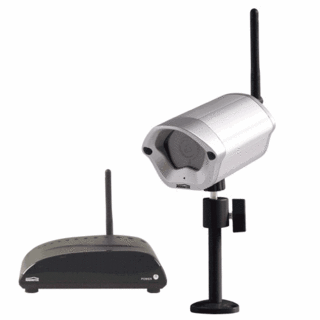Irish Government: Ireland Introduces Ecommerce Bill.
Published:
19 August 1999 y., Thursday
The Irish government has introduced an ecommerce bill, which will make the fraudulent use of e-signatures a criminal offence punishable by a prison sentence and a fine of up to USD108,000. It is expected that the bill, which was drafted by the Department of Public Enterprise, will be passed into law by the end of the year. The legislation will offer protection to online consumers pending the introduction of the EUElectronic Signatures Directive in 2000. The bill provides primarily for the validity of e-signatures under company law although it includes provision for family and land law. In addition to providing legal standing to electronic signatures, the bill includes clauses that propose to regulate the registration of Internet domain names in the Republic. Currently, domains are privately administered by the IE Domain Registry, IEDR, in University College Dublin, UCD. The bill hopes to open debate on the need for more than one such centre and greater competitiveness for consumer and business custom. The Irish government has taken a more self-regulatory approach than Britain is expected to when its bill is released in two weeks time. One of the primary aims of the current Irish administration is to drive a strong ecommerce agenda. At EU level it has advocated for simplicity of legislation and an open encryption market. One of the practical outcomes of the bill, once it becomes law, will be the establishment of Certification Service Providers and a National Accreditation Board, for which it has also provided.
Copying, publishing, announcing any information from the News.lt portal without written permission of News.lt editorial office is prohibited.
The most popular articles
Software company announced new structure_ of it_s business.
more »
 Just a few weeks ago, the world's tiniest video camera was as small as a grain of rice. Today, the world's NanoEst camera is even smaller.
more »
Just a few weeks ago, the world's tiniest video camera was as small as a grain of rice. Today, the world's NanoEst camera is even smaller.
more »
 During the experiment two research groups managed to overcome a symbolic 100 TB/s optical fiber data transmission speed limit.
more »
During the experiment two research groups managed to overcome a symbolic 100 TB/s optical fiber data transmission speed limit.
more »
 Apple’s long–awaited online storage service for iTunes could be named iCloud, if only rumours are to be believed.
more »
Apple’s long–awaited online storage service for iTunes could be named iCloud, if only rumours are to be believed.
more »
 The founders of video-sharing site YouTube have bought bookmarking service Delicious from Yahoo.
more »
The founders of video-sharing site YouTube have bought bookmarking service Delicious from Yahoo.
more »
 The successful raid by hackers on Sony’s PlayStation Network is already being ranked among the biggest data thefts of all time.
more »
The successful raid by hackers on Sony’s PlayStation Network is already being ranked among the biggest data thefts of all time.
more »
 Apple has denied that its iPhones and 3G iPads have been secretly recording their owners' movements.
more »
Apple has denied that its iPhones and 3G iPads have been secretly recording their owners' movements.
more »
 Customers who have waited nearly 10 months for the white version of the iPhone 4 won’t have to wait much longer. The Great White iPhone 4 is finally here.
more »
Customers who have waited nearly 10 months for the white version of the iPhone 4 won’t have to wait much longer. The Great White iPhone 4 is finally here.
more »
 Researchers at Georgia Tech University are teaching a robot the basics of dialogue. Named "Simon", the robot has already been taught how to attract a person's attention but eventually, it's hoped he'll be able to interact and converse with humans in daily life.
more »
Researchers at Georgia Tech University are teaching a robot the basics of dialogue. Named "Simon", the robot has already been taught how to attract a person's attention but eventually, it's hoped he'll be able to interact and converse with humans in daily life.
more »
 3D? Terribly lame when it's tossed into devices as a bullet point feature. Trimensional for iPhone takes a picture of your face and maps your mug in a 3D model.
more »
3D? Terribly lame when it's tossed into devices as a bullet point feature. Trimensional for iPhone takes a picture of your face and maps your mug in a 3D model.
more »
 The European Union is to investigate whether internet service providers (ISPs) are providing fair access to online services.
more »
The European Union is to investigate whether internet service providers (ISPs) are providing fair access to online services.
more »